COGNITIVE BEHAVIOUR THERAPY
Our Services - Cognitive Behaviour Therapy
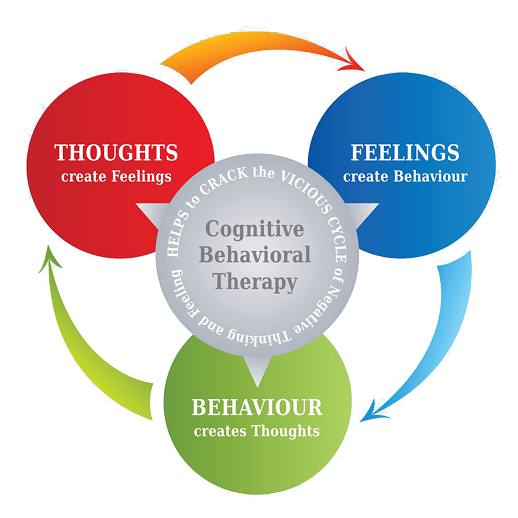
About Cognitive Behavior Therapy
Cognitive behavioral therapy (CBT) is a type of psychotherapeutic treatment that helps you understand the thoughts and feelings that influence behaviors. It is used to treat a wide range of disorders, including phobias, addictions, depression, and anxiety. Cognitive behavior therapy is generally short-term and focused therapy with a very specific problem. During the course of treatment, people learn how to identify and change destructive or disturbing thought patterns that have a negative influence on behavior and emotions.
The underlying concept behind CBT is that our thoughts and feelings play a fundamental role in our behavior. For example, a person who spends a lot of time thinking about plane crashes, runway accidents, and other air disasters may find themselves avoiding air travel. One of the main focuses of cognitive behavioral therapy is on changing the automatic negative thoughts that can contribute to and exacerbate emotional difficulties, depression, and anxiety.
Cognitive Behavioral Therapy helps you get rid of various disorders
CBT helps you overcome anxiety, depression, and negative thoughts by changing unhelpful thinking and behavior patterns for lasting relief.

Anxiety

Phobias

Depression

Addictions

Eating disorders

Panic attacks

Anger

Emotional distress
Cognitive Behavior Therapy Session
Our CBT sessions are highly goal-oriented and focused and are customized as per your needs. Our experienced team of counselors and therapists will work with you personally and explain the entire process in detail for effective results.
Through the CBT session, you are directed to examine these negative thoughts and are encouraged to look at evidence from reality that either supports or refutes these thoughts. By doing this, you are able to take a more objective and realistic look at the thoughts that contribute to your feelings of anxiety and depression. By becoming aware of the negative and often unrealistic thoughts that dampen your feelings and moods, you will be able to start engaging yourself in healthier thinking patterns.

How Cognitive Behavior Therapy helps?
Our therapists will also use various techniques to help you overcome these thoughts like journaling, role-playing, relaxation techniques, and mental distractions. During these sessions of CBT, you will learn to:
Understand Your Thoughts
- Identify problems more clearly
- Develop an awareness of automatic thoughts
- Challenge underlying assumptions that may be wrong
- Distinguish between facts and irrational thoughts
- Become more aware of their own mood
Reframe Negative Patterns
- Stop fearing the worst
- Avoid generalizations and all-or-nothing thinking
- Stop taking the blame for everything
- Focus on how things are rather than how they think they should be
- Face their fears rather than avoid them
Set Goals and Change Behavior
- Develop a more positive way of thinking and seeing situations
- Establish attainable goals
- See a situation from a different perspective
- Better understand other people’s actions and motivations
Build Self-Awareness and Acceptance
- Understand how past experience can affect present feelings and beliefs
- Describe, accept and understand rather than judge themselves or others
Cognitive Behavioral Therapy empowers you to rethink, respond, and recover with clarity and confidence.
Cognitive Behavior Therapy Techniques
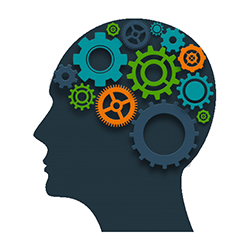
Rational Emotive Behavior Therapy (REBT)
This involves identifying the underlying irrational beliefs, actively challenging these beliefs, and finally learning to recognize and change these thought patterns.
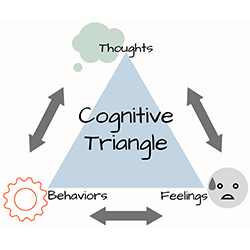
Cognitive Therapy
This form of therapy involves identifying and changing inaccurate or distorted thinking patterns, emotional responses, and behaviors.
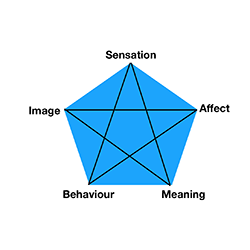
Multimodal Therapy
This form of CBT involves addressing psychological issues by addressing different modalities like behavior, affect, sensation, imagery, cognition, interpersonal factors.
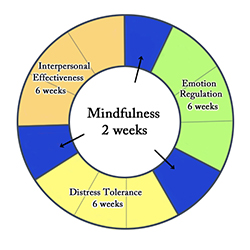
Dialectical Behavior Therapy
This involves addressing thinking patterns and behaviors and incorporates strategies such as emotional regulation and mindfulness.